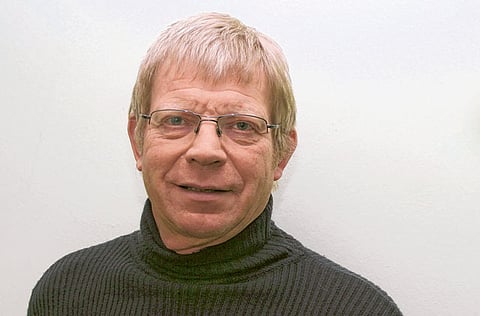Asking questions
Veteran journalist Max Easterman hopes the Arab Spring has taught his colleagues in the industry to seek real answers from governments before it is too late

Max Easterman is becoming a regular at the Emirates Airlines Festival of Literature. Last year, his workshops on trauma journalism and investigative journalism which took on an interactive, role-play format, were sold out. This year he is back with a similar workshop on investigative journalism and is teaming up with Dubai Eye for another one on radio journalism.
In his journalistic career Easterman has worked with all media platforms. He was with BBC local radio for a number of years — as a presenter and reporter for File on 4 and The World Tonight and as a producer on several other programmes — and has also done TV current affairs. In the mid-1980s he worked on, perhaps, his most difficult assignment — a documentary on sexual abuse of children, something which later became a serious social issue in the United Kingdom. He recalled the "misapprehensions", "secrecy" and "vested interests" that surrounded the issue.
He is now a senior lecturer in Radio Journalism at the University of Huddersfield and the director of the Children's Voices Trust, a non-profit organisation which uses journalism to give young people a voice on issues important to them. He also works with the Dart Centre for Journalism and Trauma, an organisation jointly based in London and Washington State University, Seattle. It is dedicated to research into the problems of trauma and post traumatic stress disorder associated with reporting violence, acute stress and distress.
His half-day investigative journalism workshop will look at the principles of investigating an issue and discovering the "real" story through the use of role-play. While many journalists consider investigative journalism a specialised form of journalism, Easterman says, if done properly, all journalism should be investigative. "There is an assumption among people that investigative journalism is a particular kind in which you skulk around the backs of people's houses, picking things out of dustbins, hacking into their phones," Easterman explained. "What I try to tell people is that all good journalism is investigative in the sense that you investigate your topic, know the background, you are well-briefed and know as much as possible about the person you are talking to so that you are in a position to challenge the statements they make."
There is the inherent skill in journalists to constantly question people no matter what position of power they may hold.
"A lot of people, be they politicians, businessmen and even academics, will make statements as given truths. Your duty as a journalist is to say why or how or explain that. If you do that, you'll find most of the time that their given truth is actually no more than a speculative opinion," Easterman said. It is asking a question and getting an answer but then determining whether the answer is what is really wanted and if there is more to it.
Easterman's experience in the Middle East has taken him to the various "hot spots" such as the West Bank and Lebanon and he has seen a developing journalism industry where there is a tendency for journalists to take too much at face value.
"This in some ways has been the background to the Arab Spring. People are prepared to go along and not ask questions as long as they have their basic needs from the system in terms of their living standard and so on. But once things take a turn for the worse and they lose access to food or oil, then they revolt against it," Easterman said. "That's the danger of not having people asking questions. When the change comes, it comes suddenly and violently. Asking questions is a safety valve. It provides answers and makes people in positions of control and power think more carefully."
Following the Arab Spring, Easterman hopes there will be more questioning not only among journalists but also citizens. "Any social or political structure works better when people question the action of those who claim to be working in the best interests of the majority," he said.
"The genie is out of the bottle. Citizen journalism and social media rather like the computer and internet in the Soviet Union have opened these societies up in a way that makes it extremely difficult for certain people to control these societies in a way they used to," Easterman said.
Max Easterman will be appearing at the Emirates Airline Festival of Literature, to be held from March 6 to March 10 at the InterContinental Hotel, Dubai Festival City and the Cultural and Scientific Centre, Al Mamzar.
Sign up for the Daily Briefing
Get the latest news and updates straight to your inbox

